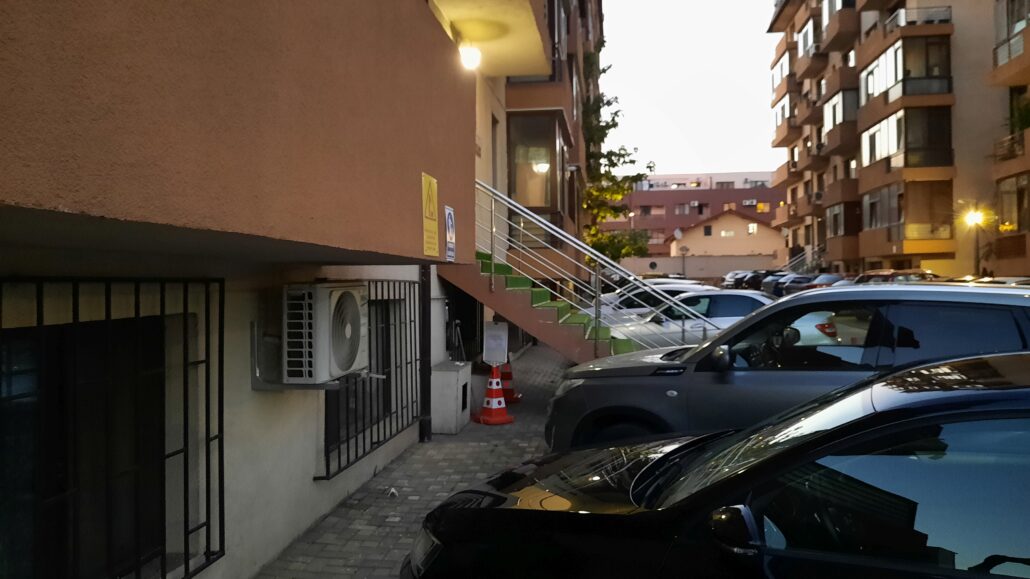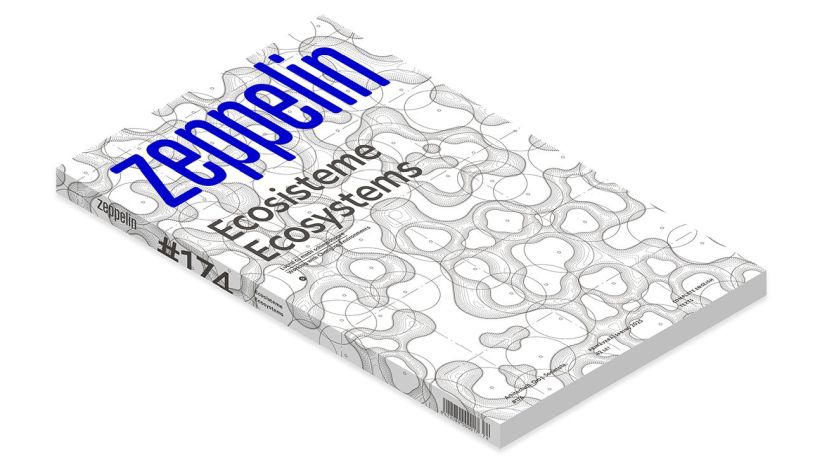There’s an advertisement touring social media: a residential complex now under construction in Bucharest consisting in a taller, uglier, and more cramped precinct of blocks than those built in the last years of Ceaușescu’s time. Right in its midst, there’s an open multi‑storey car park springing right up to the apartments. We are not able to show it here (copyright, of course), but you can surely find it. Hint: Maniu Blvd.
Text, photo: Ștefan Ghenciulescu
The matter is certainly shocking, even in the context of today’s real estate delirium. And the temptation to make fun of it is enormous—I could not resist it myself. It is difficult not to connect it to our enormous love of cars—behold, here you can actually keep a close eye on your car even if you live on the 5th floor.
Yes, it is possible that many prospective buyers will prefer such a situation to a garden between blocks, without any parking spaces. For the public authority, obsessed with providing parking spaces and unable to create transportation alternatives, this scenario is certainly preferable. Then again, we live in a city and country where people petition city halls to cut down venerable trees to keep them from further dirtying the cars they park under them.
Nevertheless, approaching the matter with only outrage and mockery is wrong. As a society, we surely have problems prioritising. But people will never be persuaded when only shown contempt. Then again, many of these horrible situations are not created by fools lacking in vision and understanding, but simply by entire groups of people who have no other choice. And then we realise that many of us clever ones avoid such situations not so much (only) because we know better, but because we can afford it.
In this country, the market dictates everything. And the market does well for itself: where there is enormous demand, the product sells, regardless of quality. Ensuring a minimum decency standard should be the job of authorities, of regulations, and also of an intelligent intervention on the market, by building affordable housing that would not provide just decent shelter for the underprivileged, but would also reduce market pressure and prices. Would that be communism? Not at all, instead, it would be exactly what happens in the best cities of Europe and around the world.
In Romania, thousands of people end up living not with a parking garage a few meters away from their balcony, but in a block of flats in the countryside (!) or in a demi‑basement (!) with cars parked right outside their window. Because this is cheaper.
This summer issue’s Dossier contains texts and examples that show that (and how) things could be done differently; including a housing project in France, where cars cohabitate with people humanely—however, waiting to make way for other functions in a time when they will become less present in the city.
*photo: Semi‑basement living. Rahova‑Pucheni area, Bucharest


